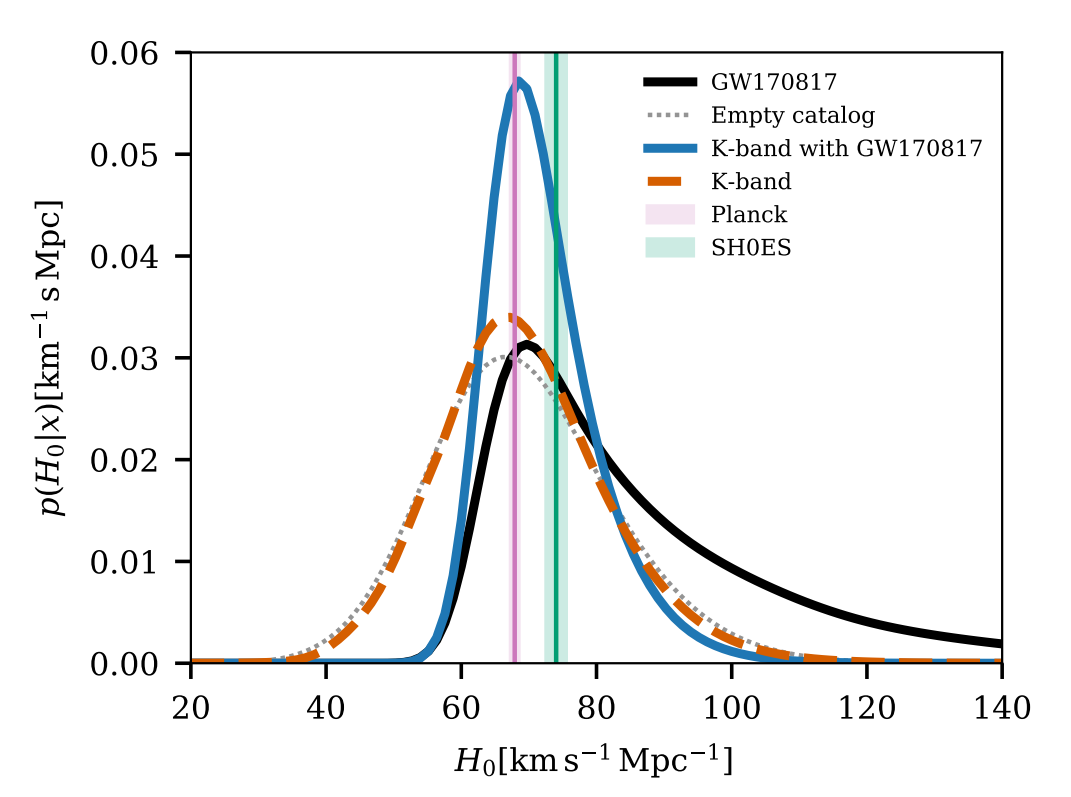2022 October 14: Ghent University hosts a very successful two-day Belgian-Dutch Gravitational Wave Meeting with more than 100 participants and around 50 contributions.
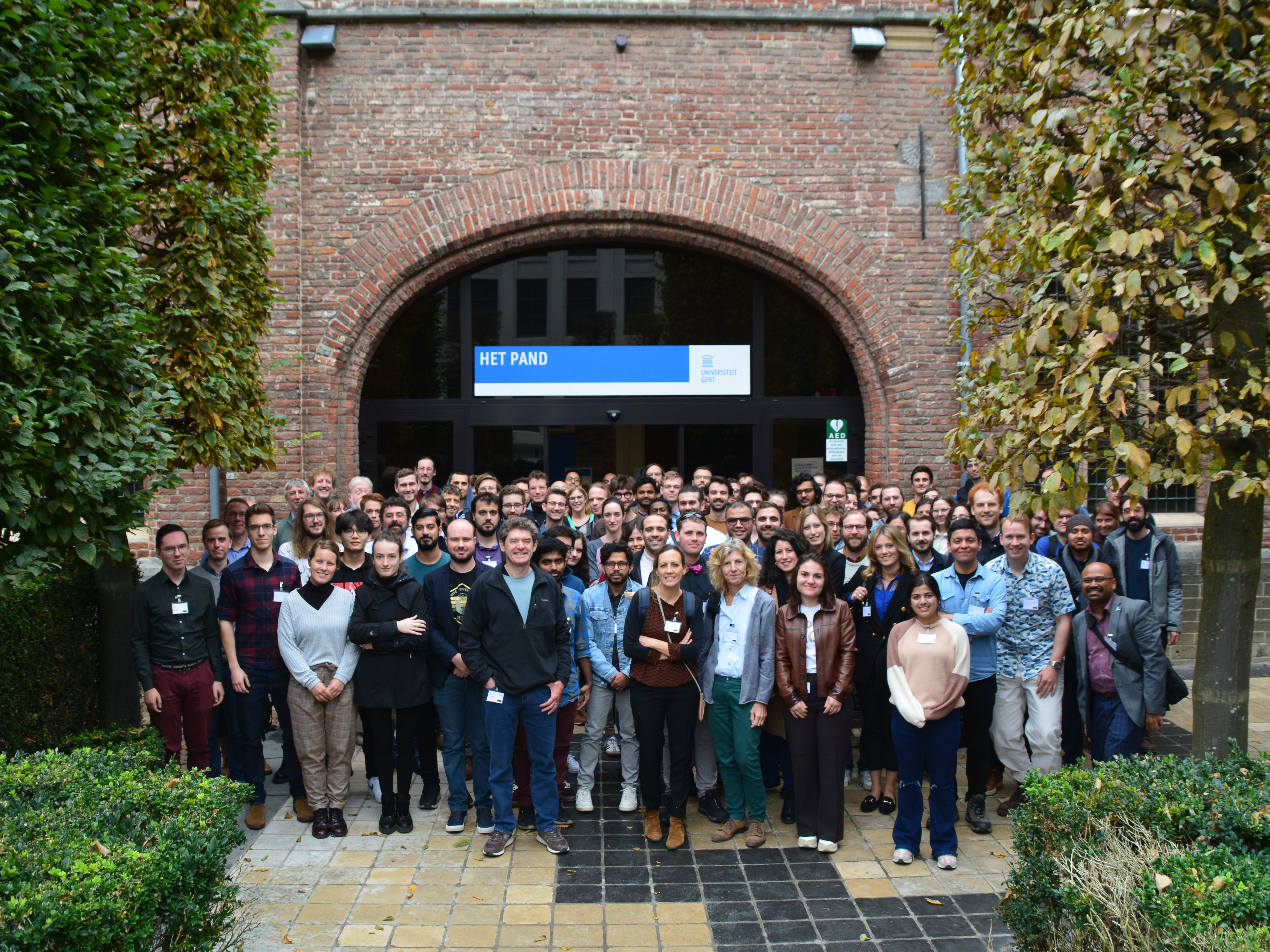
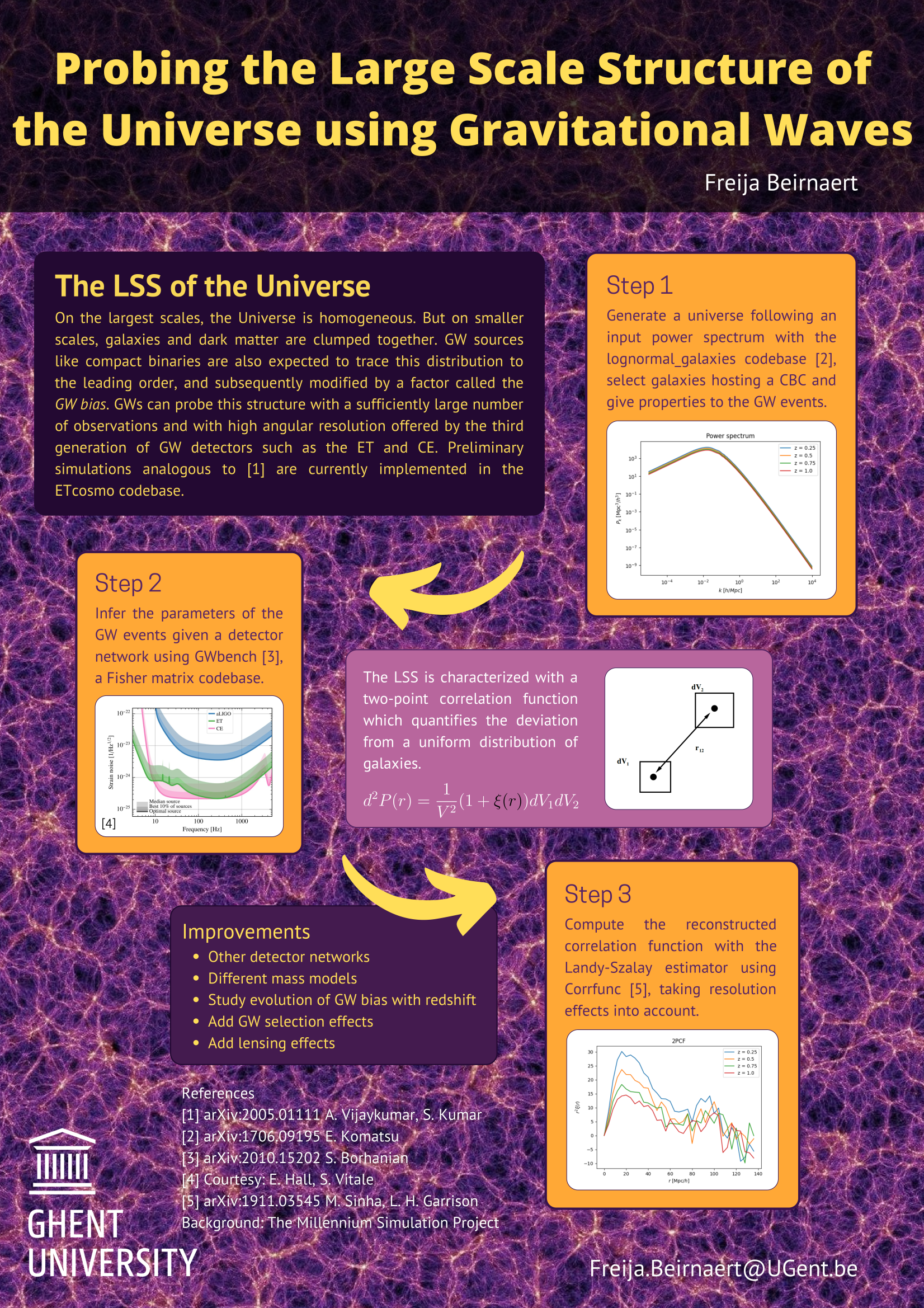
2022 September 15: PhD student Freija Beirnaert wins best poster prize in category Data Analysis / Astronomy at the LIGO-Virgo-KAGRA Collaboration Meeting in Cardiff, 12-15 September 2022.
2022 July 08: Masters student Sibe Bleuzé wins the Armand Pien Prize for the best masters thesis in Astronomy for the academic year 2021-22 in the Department of Physics and Astronomy, Ghent University. Working under the supervision of postdoc Gergely Dálya, Sibe developed an infrastructure to extract physical information about a supernova explosion from the signature observed in gravitational waves. Gravitational-wave observation of a core-collapse supernova could be the next major discovery by the LIGO-Virgo-KAGRA detector network. Since the explosion mechanism cannot be precisely modelled, there is a big disconnect between the physical properties such as mass of the stellar progenitor and the gravitational-wave signal itself. Using state-of-the-art machine learning and Bayesian techniques, Sibe’s work closes this gap. The research will prove itself to be of fundamental importance if a supernova is discovered as the gravitational-wave detectors are turned on again for the next observing run.
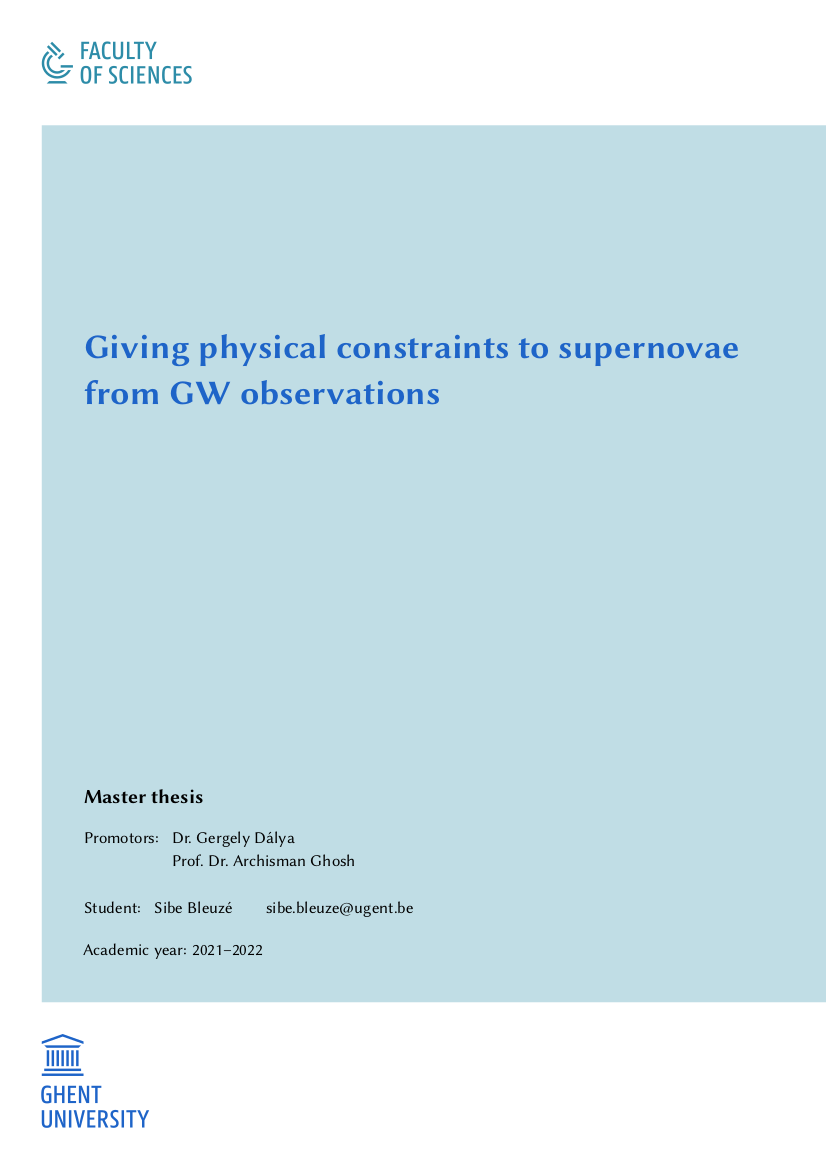
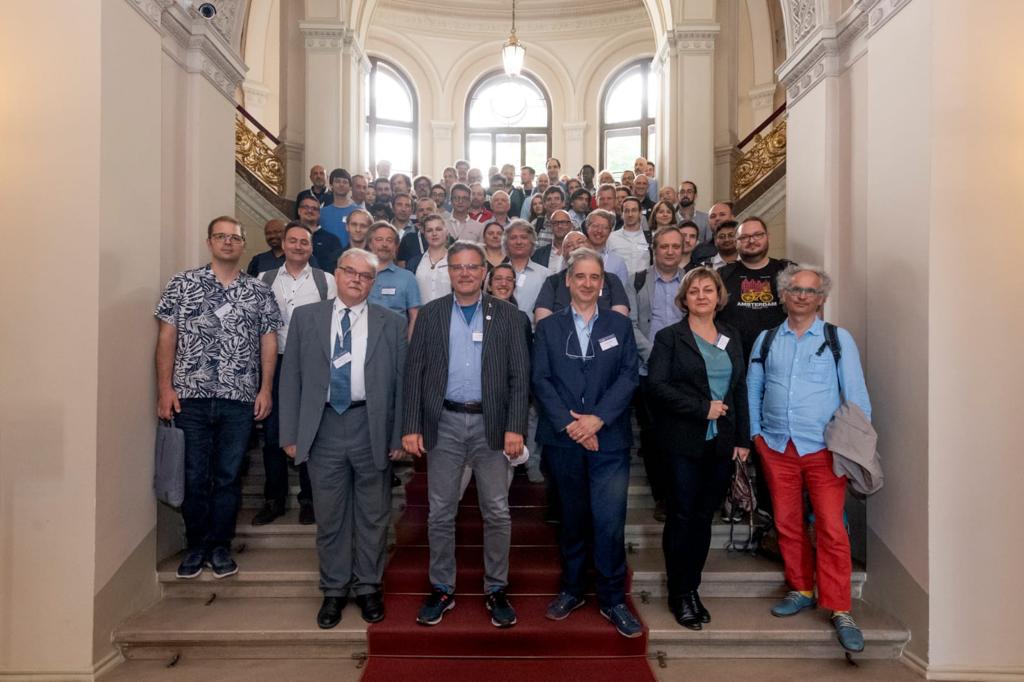
2022 June 09: The Einstein Telescope Collaboration is established at the 12th Einstein Telescope Symposium in Budapest, 7-8 June 2022 [NEWS]. Ghent University is one of the seventy or so initial members of the Einstein Telescope Collaboration.
2021 November 18: Ghent University hosts a Gravitational Wave Day with members across different research groups of the Department of Physics and Astronomy and the Department of Solid State Sciences in Ghent University and a few members from the ETpathfinder project in Maastricht Univerisity. The meeting seeks to develop and build research collaborations.
2021 November 07: The LIGO-Virgo-KAGRA Collaboration circulates the most up-to-date measurement of the Hubble constant, the local rate of expansion of the Universe, using gravitational waves. Ghent University researchers have played a central role in obtaining these results. You can read the scientific preprint submitted to the Astrophysical Journal or the public science summary following the links.
